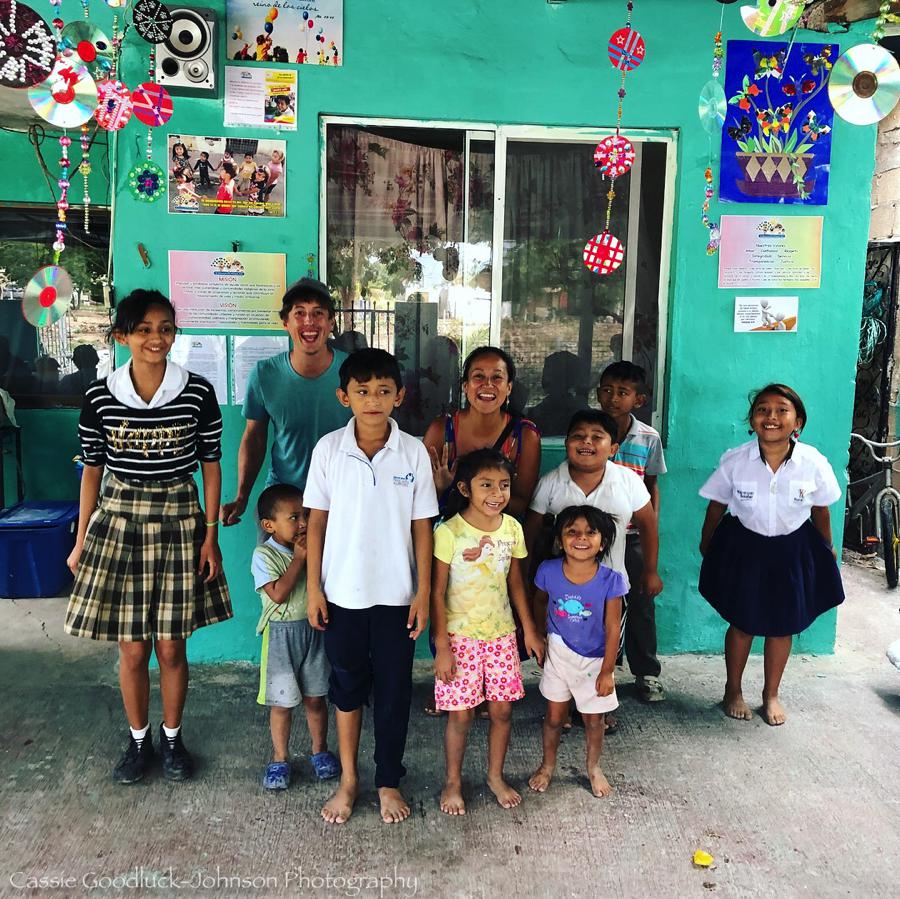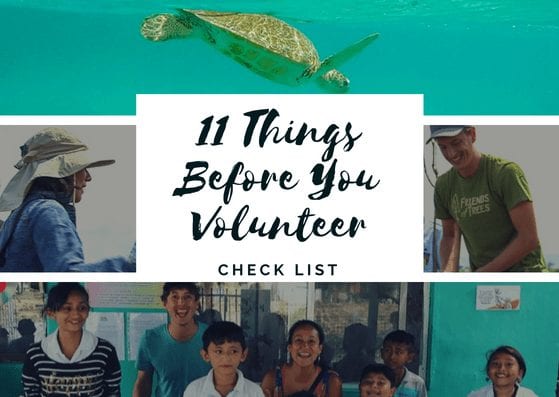11 Things to Double Check Before You Volunteer Abroad
As digital nomads, volunteers, and citizens of the world, we want to do good for the world. In the modern age of environmental and humanitarian crises, especially in places we love to travel, it’s apparant there is a growing need for more and more travelers to help the local communities that they visit. Whether you are traveling for a day, a week, a gap year or are looking to completely change your lifestyle and give your whole life to helping, there is information you should make sure to know before you decide to take the leap and volunteer abroad.
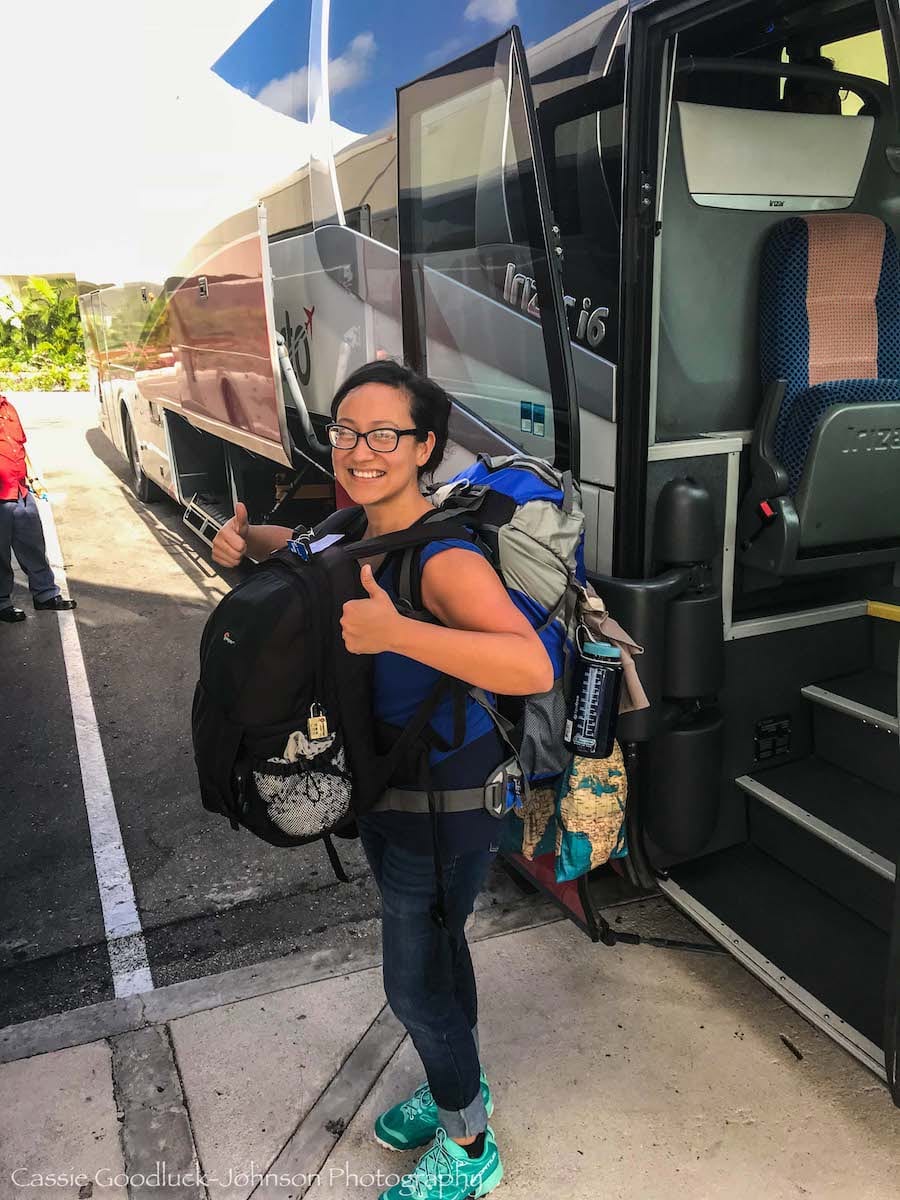

The Checklist
We have compiled this list because of the mistakes we have made. These tips will help you save your money from scams (we received a refund after donating to a non-profit before doing our research) and could also save you from a long walk home, which we also did. (It was a 5-mile walk in 105-degree weather, without shade, to escape a bad situation – see the below right photo.)
Below to the left is a picture of us getting into the van that almost broke down on the way out of town – the nice shiny world in front of us, not knowing what we had just gotten ourselves into. Note: the van did actually break down a couple days later, but we will go over that in our what-to-double-check-before-you-go tips.
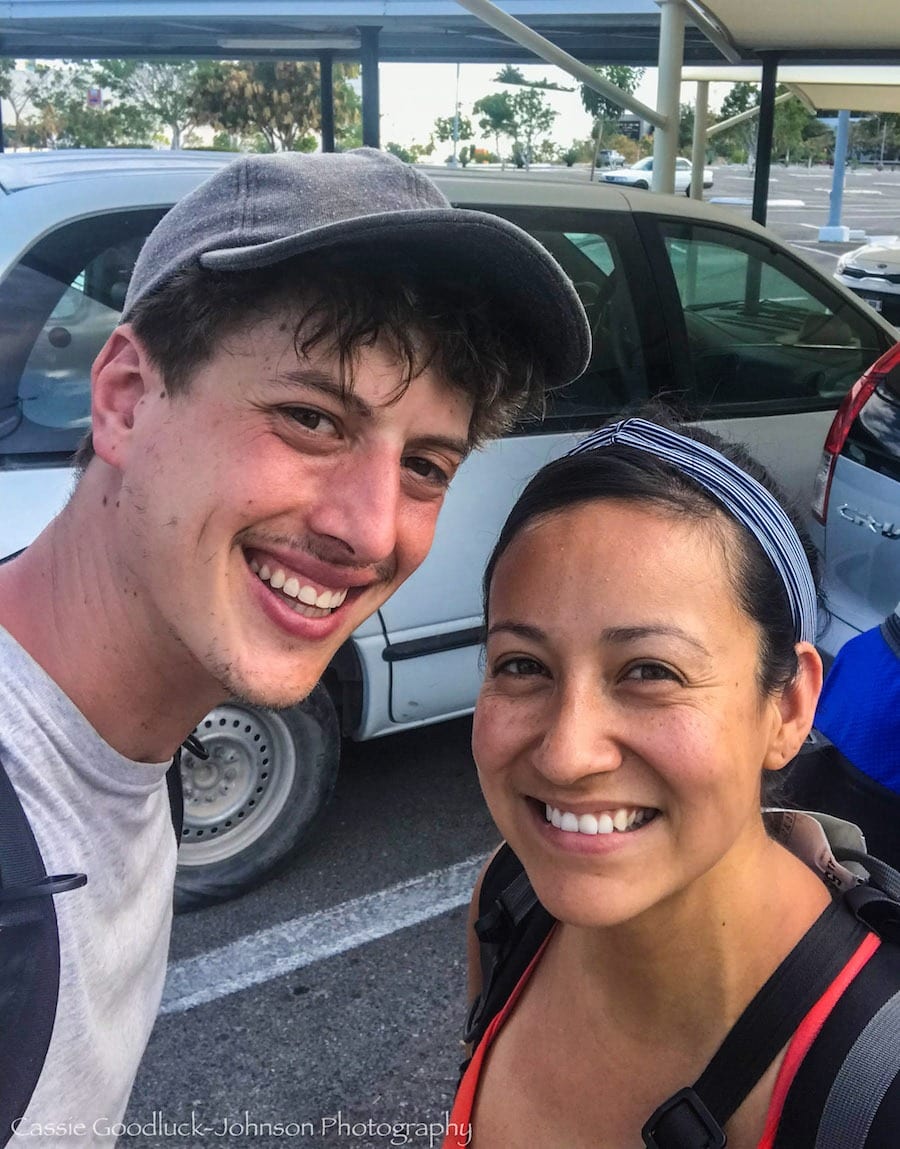
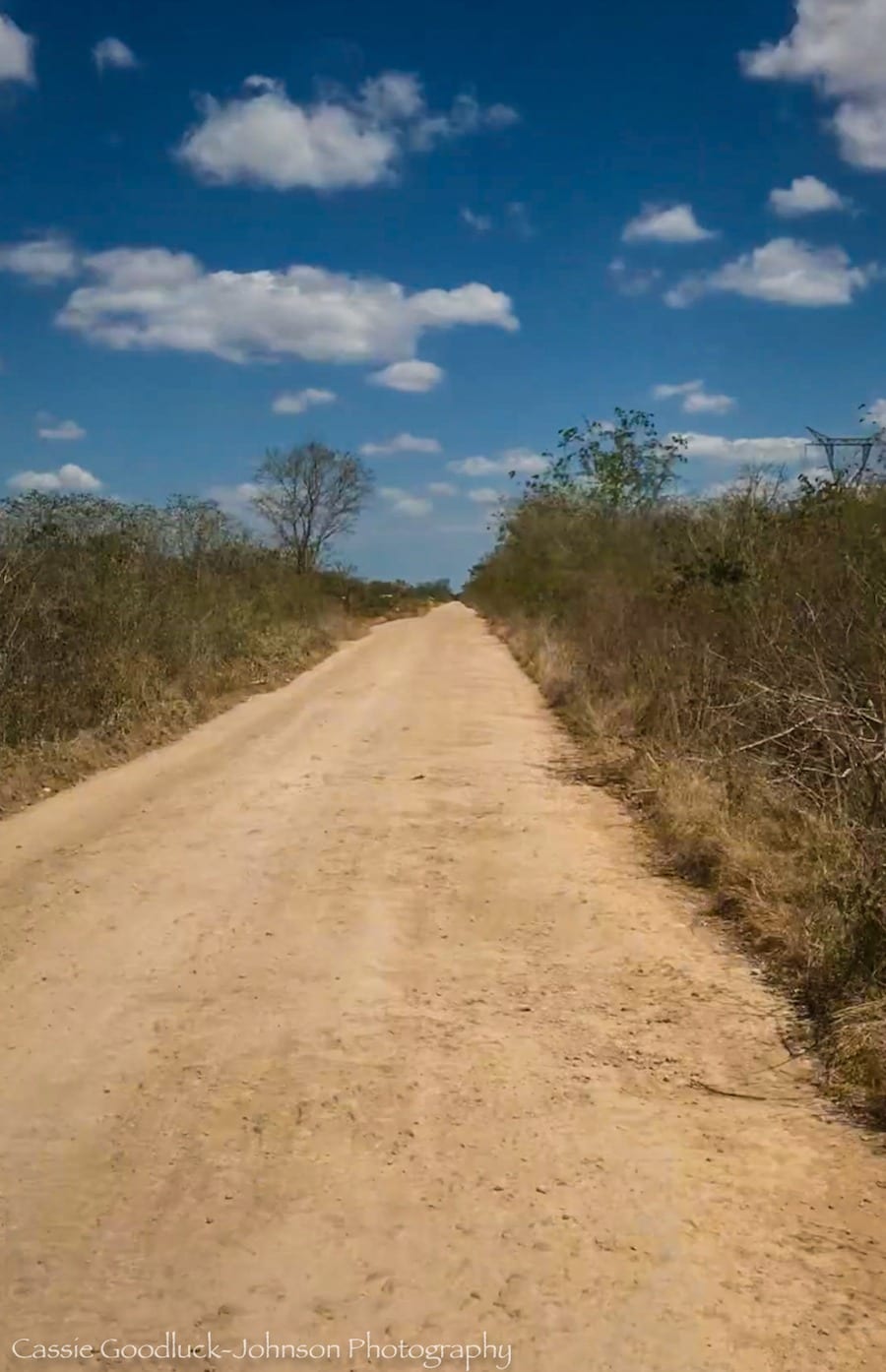
Tip #One
Know Before You Go:
Make a spreadsheet of different volunteer organizations you have found online or through word of mouth, and keep detailed notes. Long detailed lists are not going to hurt you. In the end, they will only help you. Do your research on the organization, the people who are leading, the hosts that are going to host you and the people who have already gone through the program who can give you honest feedback of what their personal experience was. (You should be able to ask the main contact at the volunteering site to send you a list of previous volunteers’ contact info as part of a reference list.) Vet the overall organization, the location and make sure to go through a checklist like ours or other travel writers to make sure you dot all your i’s and cross all your t’s. Trust us – although tedious, this check list is going to make a huge difference in your future experience. If you don’t look into the details, you might end up in a sticky situation regretting that you left the comfort of your home at all.


Because it’s important to understand the organization you will be volunteering with we recommend that you find answers to the questions below.
Questions To Ask Potential Organizations Before You Decide:
- Does it cost anything?
- What is the cost breakdown? (food, accommodations, fees, etc.)
- Where does my money go?
- Do they recruit locals or international volunteers?
- Is any training provided? If so, what kind of training is the organization providing?
- Or on the other hand, are you bringing the skills / specialty / training needed in that organization?
- What are their needs and do they match yours?
- Do they hold your hand in traveling to their site?
- Are accommodations and food provided?
- Shannon O’Donnell, the writer of “The Volunteer Traveler’s Handbook” has a wonderful list of questions you can read HERE.

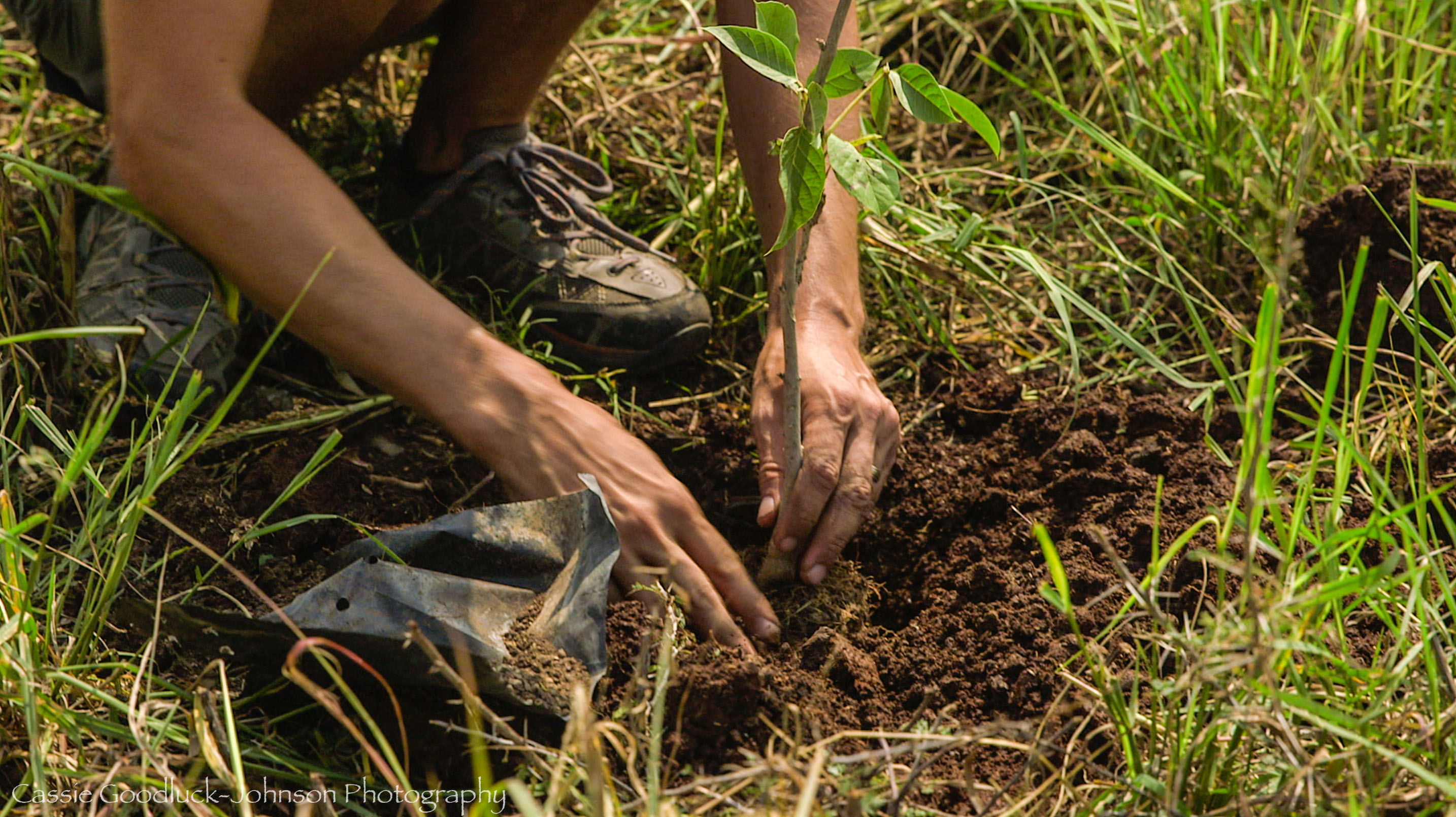
Volunteering Resources
We want to share with you two amazing resources Cassie has read and studied extensively before our trip. (In retrospect, we wish we had taken the sage advice listed in her book and website before taking our first volunteering leap.) We continue to use both of these resources as we volunteer abroad. Both are written by Shannon O’Donnell, a world traveler and veteran volunteer:
- Grassroots Volunteering Website – Grassroots Volunteering is a resource connecting travelers to causes and communities in the places they travel. The site consists of a dual database of organizations all over the world [including]:
- Volunteer Opportunities
- Social Enterprises
- The Volunteer Traveler’s Handbook – available in kindle or paperback
- The Volunteer Traveler’s Handbook guides new and veteran travelers through the challenges of finding, vetting, and choosing their ideal volunteer experience. The book’s practical advice is interwoven with first-person narrative, stories from a wide range of volunteers, beautiful photography, and expert interviews to help interested volunteers find meaningful ways to give back to communities all over the world-through volunteering, but also through social enterprises and supporting sustainable tourism practices.

Tip #Two
Make Sure That It Is Mutually Beneficial
You are giving your time and a lot of sweat to an organization that sometimes even makes money off of your labor. But in no way should it be all give and no take. This goes right along with the question: what is your passion? Make sure that before you go, you email the organization and ask them what educational activities they have planned for you as you spend your time in that location. A lot of organizations have planned outings of local tourist attractions, discounts on language learning programs, etc. It is completely reasonable for you to ask. If you are paying any amount of money to an organization make sure the arrangement is at least mutually beneficial.
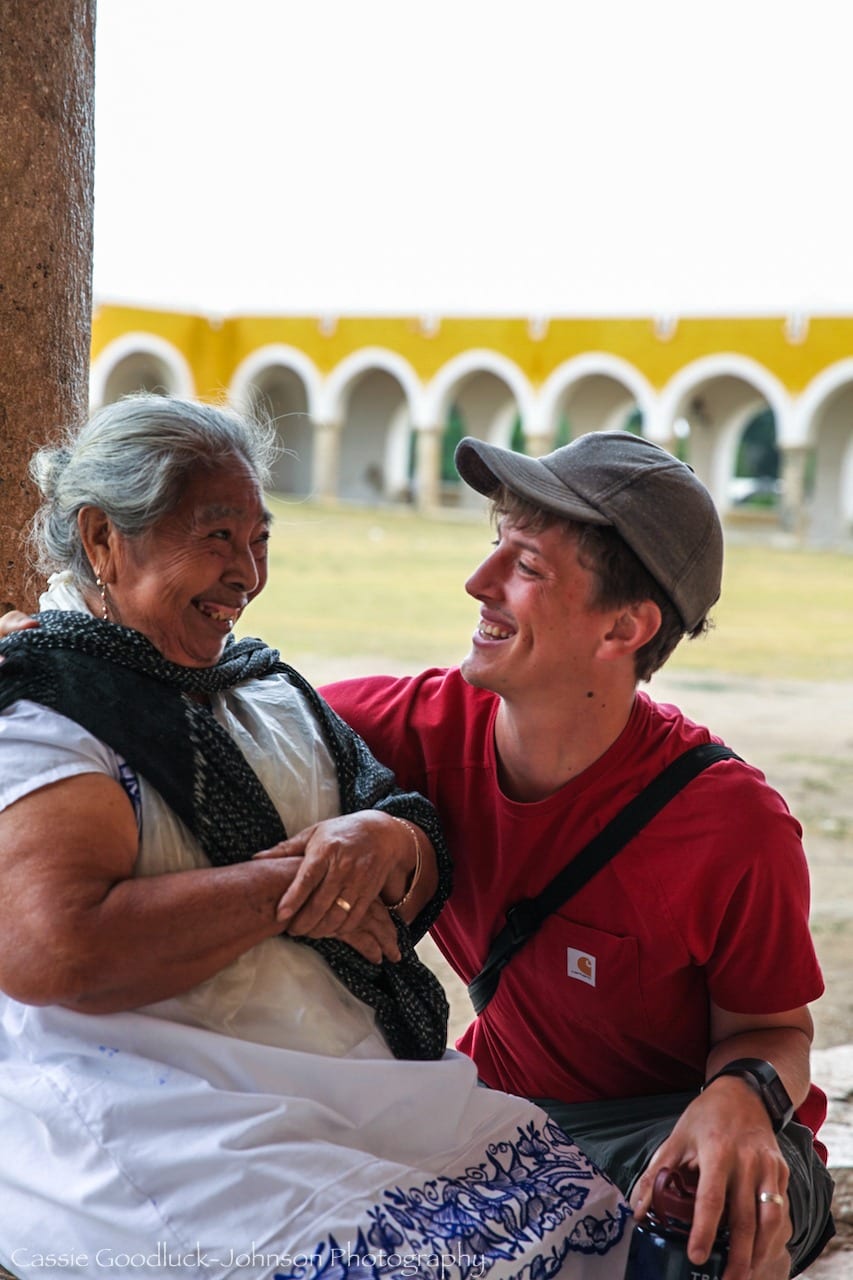

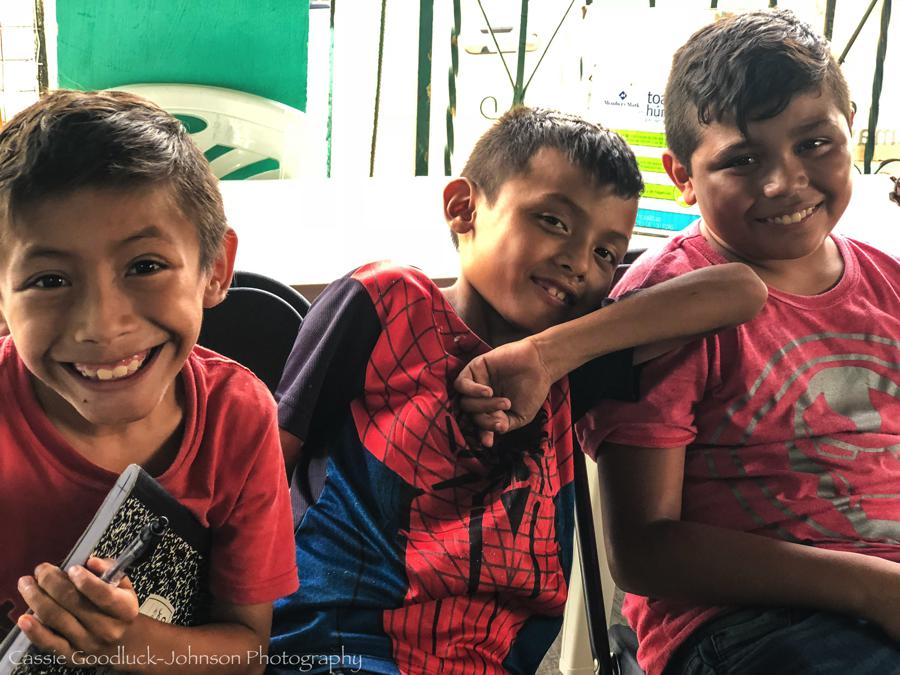
Advice To Be Happy As A Volunteer Practically Anywhere:
Keep an open mind with a positive mindset, with a focus on how you can be most helpful. Be willing to listen and learn about the community you are going to volunteer with. It will lead to a mutually beneficial and enjoyable experience. Remember you won’t change the world overnight by yourself, but you can be a small part of a larger whole truly making a difference in the world.


Important Questions To Ask Yourself:
- What skills do you have to contribute to an organization? How does it relate to their mission?
- How long do you have to volunteer? Remember especially when working with children – they need long term, caring volunteers in their life, not short term strangers. This is even more apparent when working with orphanages.
- What are your passions?
- What are your goals?
- What are your motivations?
- What are your assumptions and expectations?
- What do you hope to give?
- What do you hope to gain?
- What kind of difference do you want to make in the world?
- How long do you have to research and plan your trip?
Tip #Three
How To Select The Right Projects For You
Make a list of what you like. In the world of volunteering, there are thousands of different types of projects – from Sea Turtle nesting sites to teaching English to children in a soup kitchen. Our best advice is for you to make a list of your top ten activities, skills and causes that you already have a passion for. Start with researching your top pick and write down information you find about it in a spreadsheet for future cataloging when you will start your selection process. We can not emphasis this enough – DO NOT sign up for programs just because they are in a good location. Most volunteer programs require a lot of work and you give a lot more than you get. So make sure that you love (or at least like!) what you are doing.
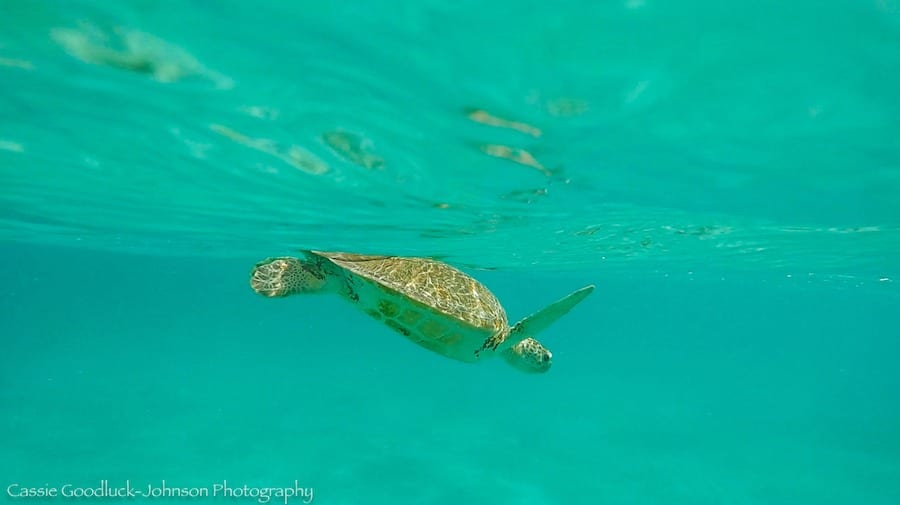

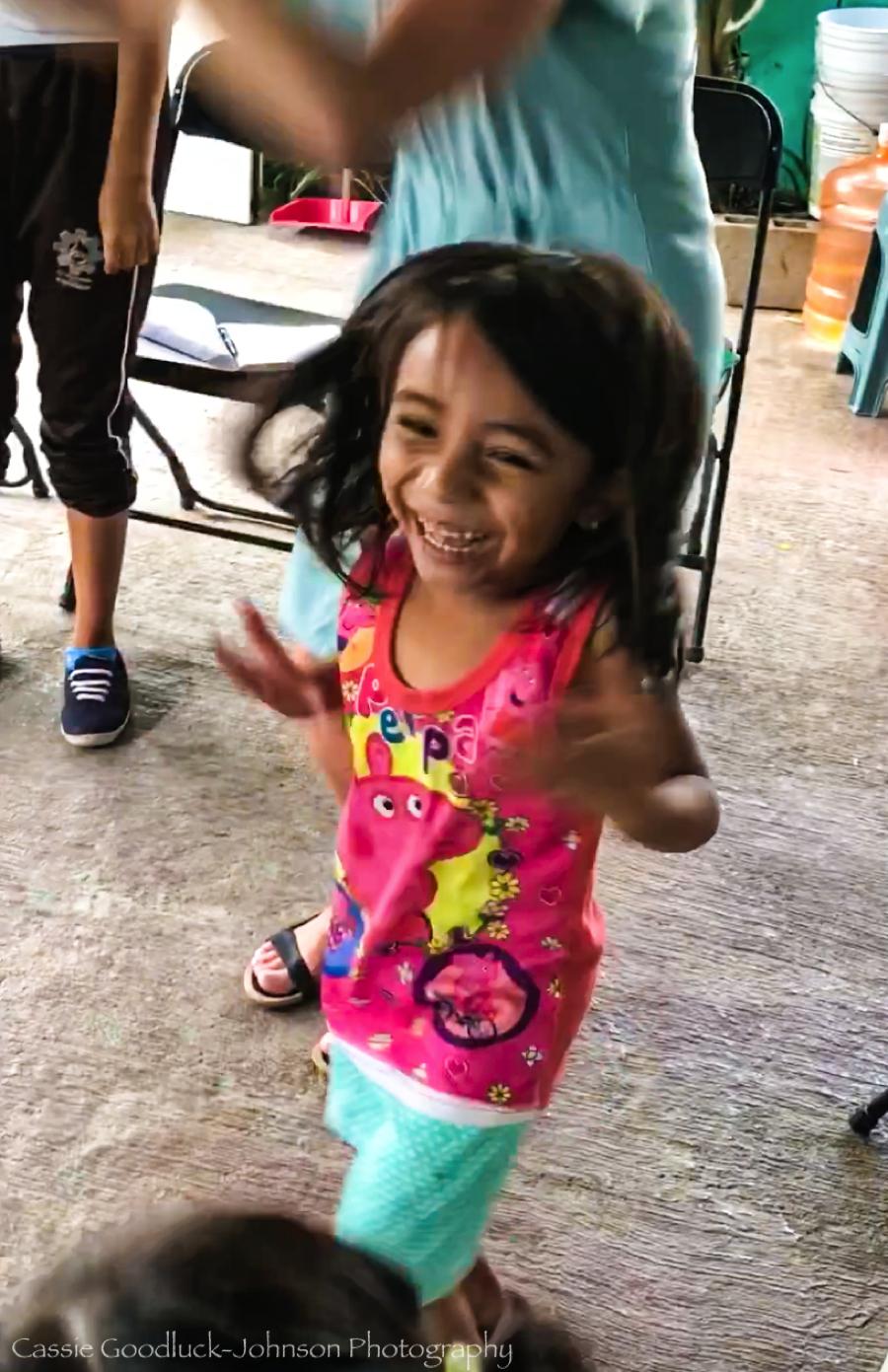
The Volunteering Spectrum
There is also a spectrum for volunteering experiences to consider. On one end is Independent Volunteering (similar to what we are now doing in Merida with the Yucatan Giving Outreach A.C. Non Profit), and the other end is Voluntourism. Right in the middle is the Middleman (no pun intended). Below are definitions for each type of volunteering:
- Independent volunteering – the details and research for both traveling and volunteering is handled exclusively by the volunteer… you.
- Middlemen – placement organizations that facilitate volunteering.
- Voluntourism – caters to tourists who are looking for entirely planned volunteer tours throughout the world. It could range from 10% – 80% volunteering during the trip. It is usually just as expensive as a regular vacation because all travel, accommodations and extras such as guided tours, travel insurance, airport and taxi rides – are all included in the cost. Think of it as the “all inclusive resort” to the volunteering world.
Any quick look into Voluntourism and you’ll see the potential dark side of volunteering short term. For example, in countries like Haiti, Cambodia and Uganda, there are for-profit orphanages set up where they have figured out that they can make money through the orphanages and visiting volunteers’ donations. And some of the kids already have parents. It is incredibly sad.
“The volunteer “industry” is currently estimated at 2.8 billion in annual revenue, and is expected to grow as more people seek volunteering experiences each year.” – Volunteering and Voluntourism: The Good, The Bad and The Questions You Should Ask – by Audrey Scott
The main question to ask yourself when researching and deciding what end of the volunteering spectrum suits your needs most, is: Does my volunteering actually help the people I’m seeking to serve?
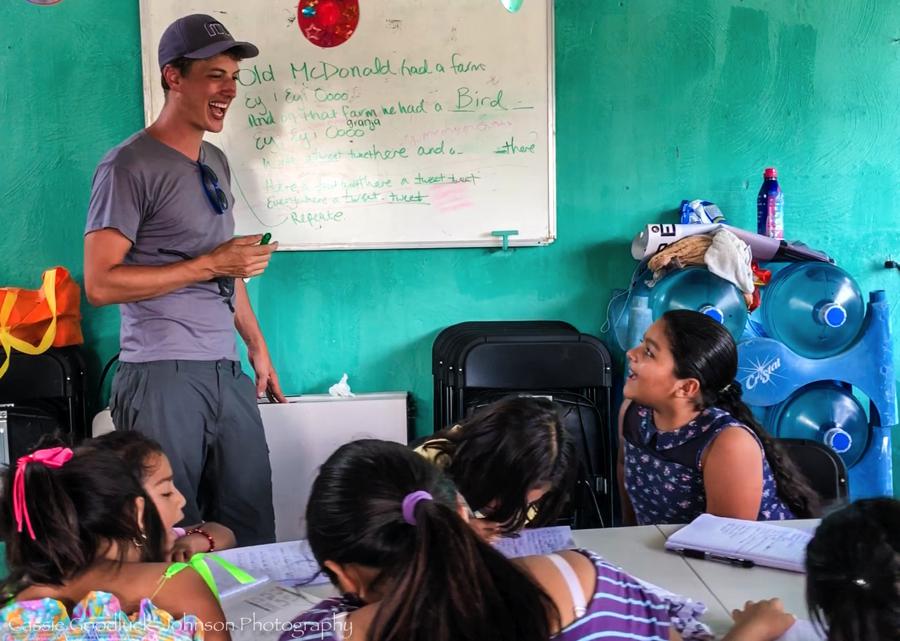
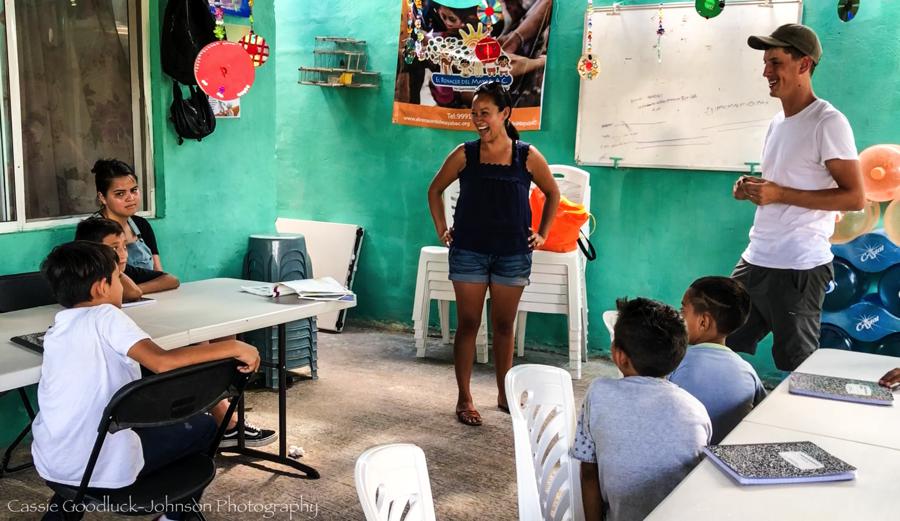
“Roughing It” Is A Different Experience For Everyone
- Where will I sleep?
- What do the accommodations look like?
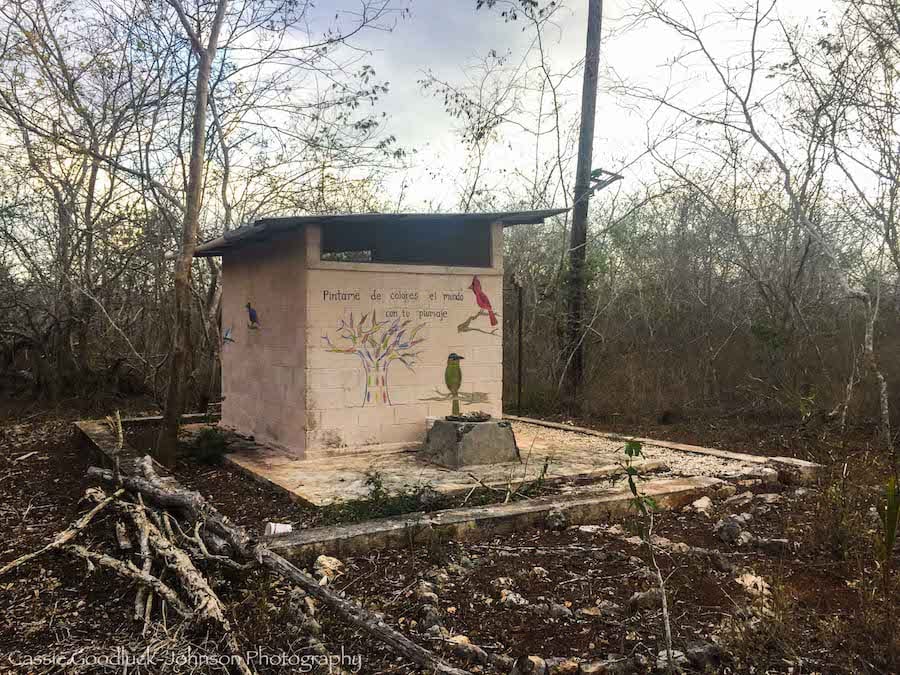
Tip #Four
Do Your Research On The Local Culture And Political Stability Of The Country
It is a big world and there are so many moving parts. Current crime statistics and politics play a large role in our decision to go into a country. One of the websites we check is the State Departments Travel Advisory website. Not to scare you, but it’s more about being aware of what you are walking into. You should also register for the SMART traveller program through the State Department. They can keep you updated about any emergency situations that may come up.
Consider that when you volunteer you are entering someone else’s community and space, so do your research beforehand. Know a little of the language, the social norms and their expectations for foreigners. (For example, in India women should always cover their shoulders when going into temples – so having a shawl always in your bag is helpful to know ahead of time.)
This is where a trip to your local library and an internet surf of your favorite travel blogs should come in handy. Check out a diversity of sources, from nonfiction memoirs, to touristy books (Lonely Planet), to history books and famous authors from that region.

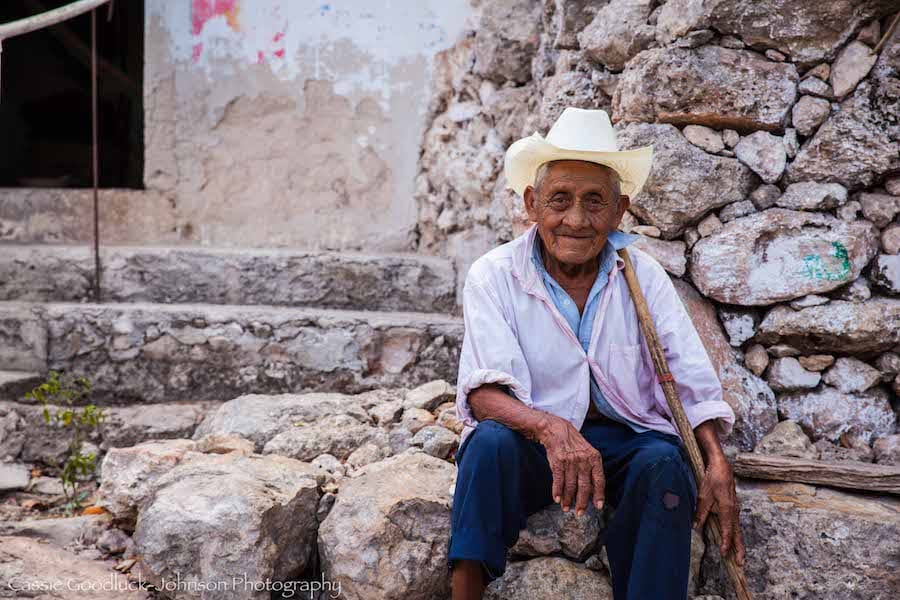
Tip #Five
Make Sure That The Project Is Sustainable For The Local Population
Projects, funding and people, come and go. As volunteers in the world, we hope to make a lasting impact as we put our heart, soul, sweat, and tears into a project. But what if all that work disappeared as soon as you left? Would you still put in the effort? One thing on our checklist is to make sure that what we put our effort into is sustainable for the local population to keep on going when we leave. Putting time and money into an aquaponics project that requires the local population to spend hundreds of dollars on feeding and caring for the fish to feed a small population is not sustainable. Creating a program where the local community can take the produce from the aquaponics garden and sell them at a local market to sustain the program and community, with a series of attainable, actionable goals for the project, on the other hand is.

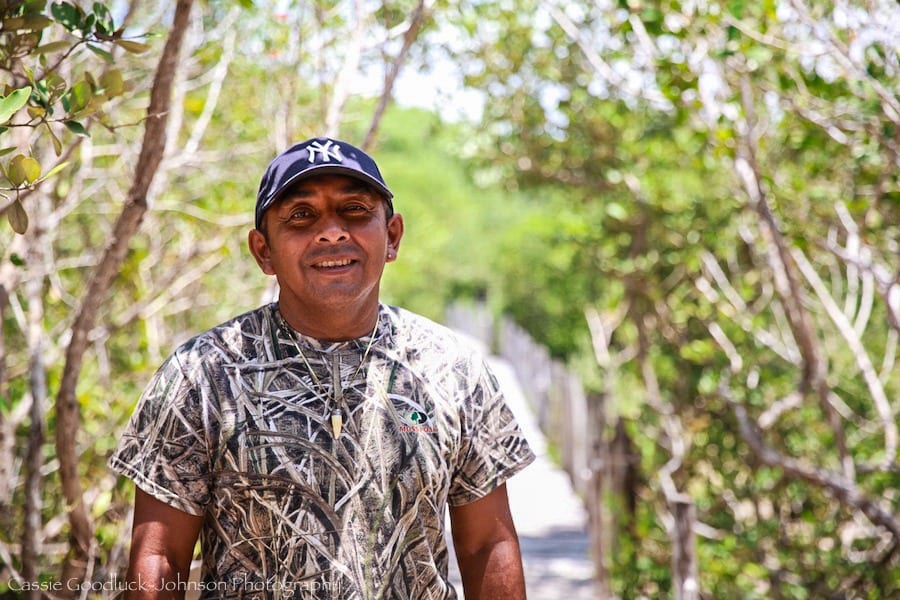
Some Things To Keep In Mind As You Research To Find A Good Volunteering Match:
- Are the people being affected and impacted, involved in the day to day process and decision making of the volunteer project? If not, it might be doing more harm than good.
- Is the organization reacting to the actual needs and communicated priorities of the community it is helping?
- Is it facilitating and empowering them in the direction of autonomous and independent sustainability with the goal of it eventually not being dependent on the volunteers to succeed?
It’s Also Good To Consider:
- The state of unemployment in the areas you seek to volunteer in, and make sure the project is not undermining local jobs through volunteering (when that same job could be paying a local person and going back into the local economy)
- Training the local population with your specialized skills can be a great way to create a sustainable, longterm and independent community – especially if those skills were lacking before you arrived. Get creative! These skills could include: computer, English, gardening or building, etc.

Tip #Six
Our Recommendation
Long Term Vs. Short Term Volunteering
Longterm volunteering may be your best bet because it’s hard to develop deep connections and make a lasting impact, especially with the people you want to help, if you’re only there for a day or a week. However, if you only have a small amount of time, short term volunteering can be very helpful if you are training longterm staff. (For example, you could organize short workshops to train the organization on areas that they lack training, or set up an initiative that can benefit and sustain itself through the community).
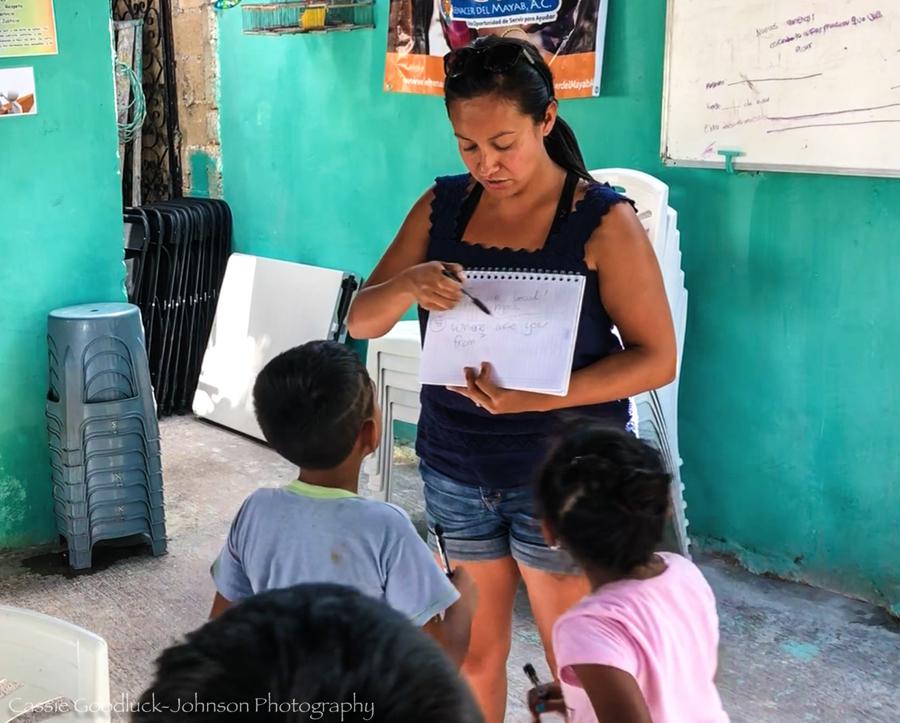
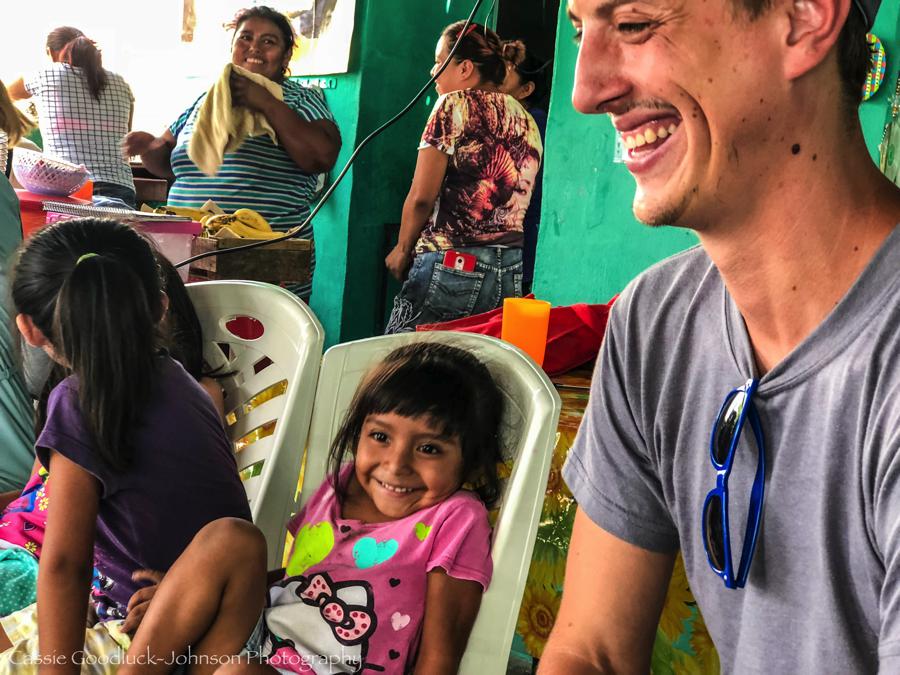
Listen To The Local Community About What They Want And Who They Trust
Our recommendation is that if you can travel longer and have the time, seek out a local organization that hires longterm locals and volunteers, that you find through recommendations by other locals and expats in the area. This method aligned best with our lifestyle, goals and priorities. When we moved to Merida, we first found our own month-to-month apartment, with our own kitchen and accommodations, separate from any volunteering project. And we had the luxury of taking our time to vet and decide on the organization we wanted to volunteer with, while being in the same place. The great thing was that we found our volunteering organization through good old fashioned word-of-mouth, which in our opinion is usually the best way to find anything. Why? Because it is trustworthy. If multiple people you are meeting in one place are all telling you to go to one reputable organization, then it is obviously doing a good job helping that community. Where can you find said recommendations? We joined an expat coffee club that we found through a Facebook search in Merida. After just a couple of weekly meetings, we were continually directed to contact Yucatan Giving Outreach – a nonprofit helping over 1,200 underprivileged individuals in Merida and the surrounding area. It has been a wonderful contact for us. Through YGO we were matched with an awesome soup kitchen in north Merida where we help teach English to children who need it for their school.
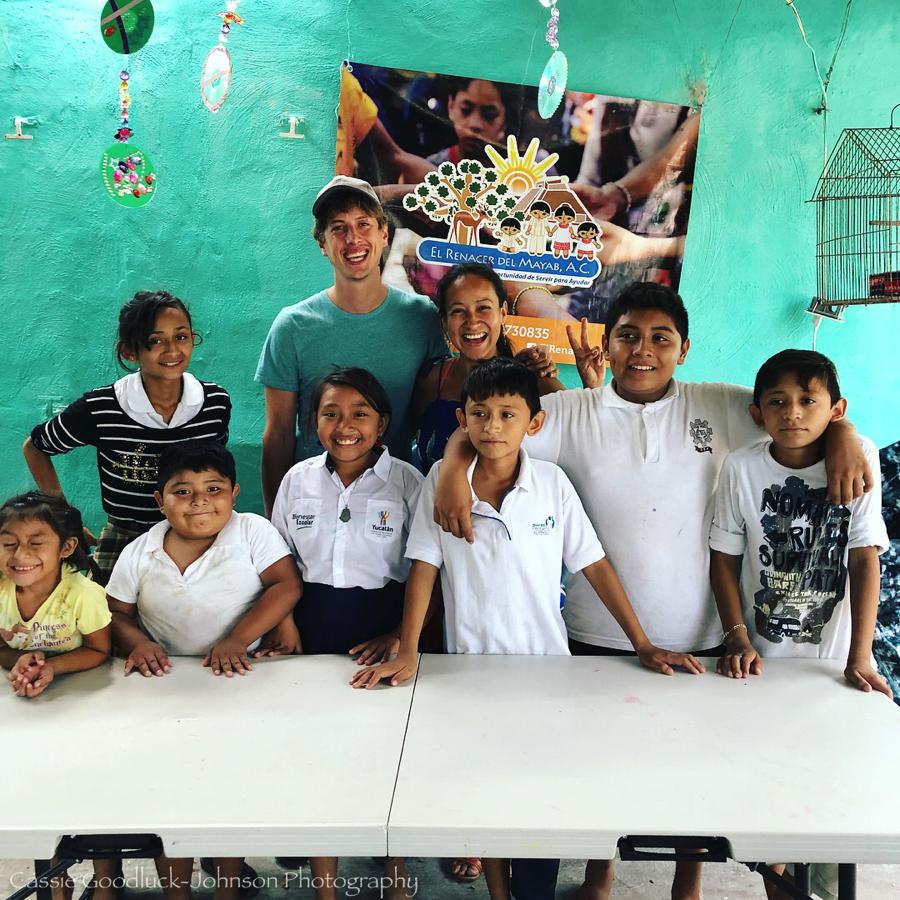
We Learned This The Hard Way
Our first volunteer project was the complete opposite situation. We found it online through a site called Numundo. Numundo is a sort of middlemen, with a website that helps people find volunteer projects based on their filters in their search (dates, place, etc.). They are supposed to figure out most of the details for you ahead of time, without you actually being there. Though not every volunteering search engine is built the same, we’d recommend you asking a lot of questions directly to the organization ahead of time, before ever committing to any project you’ve never been to. Especially before giving them any money or deposit.
Arrive Early
We’d also recommend you get to the destination or nearest city a few days ahead of time to scope the area and community before you get to the volunteer site. Why? If the volunteer project doesn’t end up working out, then you will be familiar enough with the area to know where you’re going and where you want to move to, at least with enough time until you get back on your feet and figure out your next move. That’s what we did (thankfully) a few days before our initial hellish volunteer project in a town 45 minutes south of Merida. We realized how much we loved Merida before that project ever began, and that is why we ended up moving to Merida after that initial project did not work out. So the underlying question is – what is your backup plan?

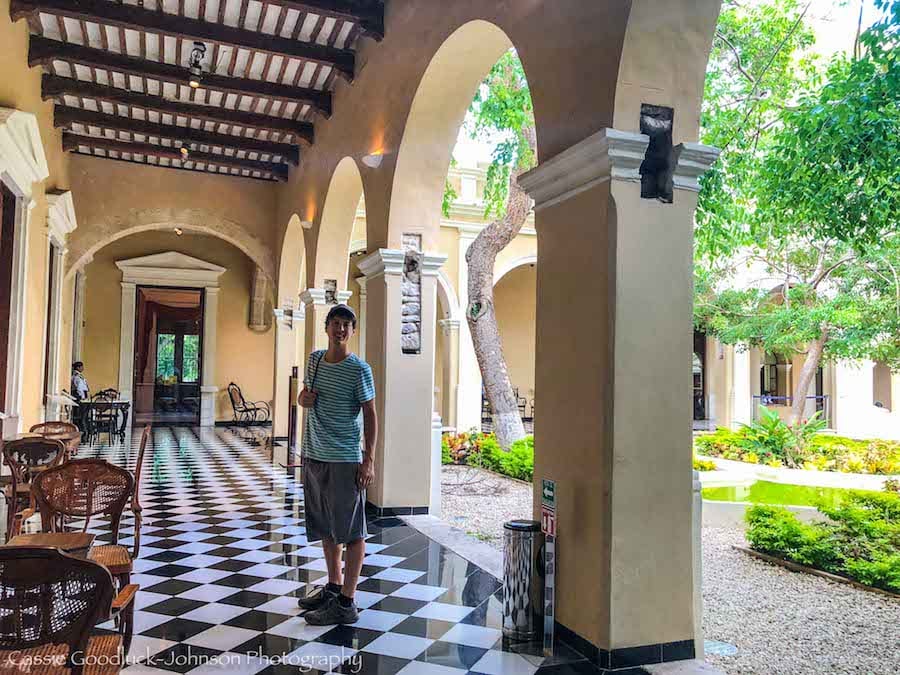
Tip #Seven
Talk To Other People That Have Volunteered At The Same Project
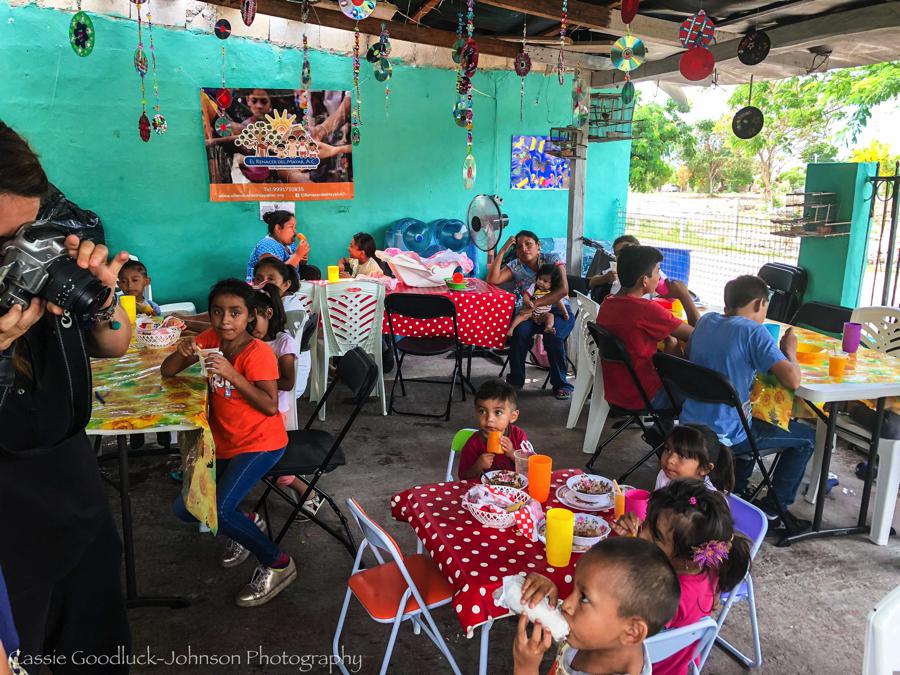
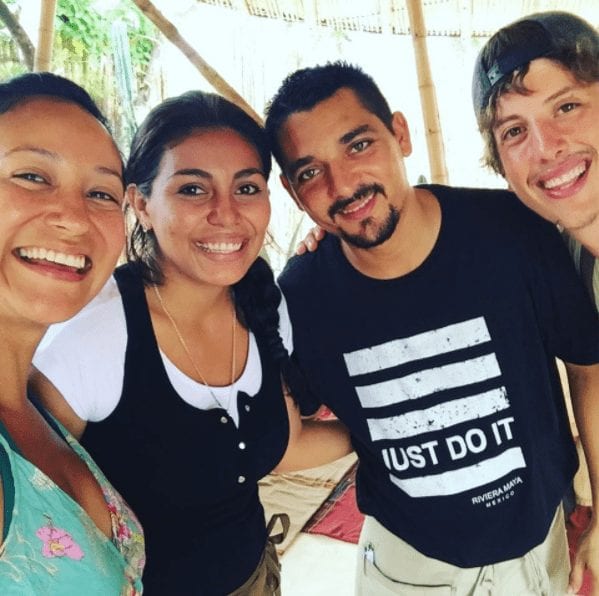
Tip #Eight
Get Everything In Writing


Tip #Nine
Pack & Prepare Right!
Packing
Do your research on the location you will be visiting and make a packing list of things to bring specific to that place. Document what you bring on a digital notepad and email it to yourself and family. What to pack is always important when going out into the world. It could be freezing cold and raining, hot and humid, varying between hot and cold, or dry and hot to the bone – and don’t forget about mosquitos. One tip we have is to ask your volunteer project about accommodations. If your volunteering site is going to be a hike into a jungle with rustic accommodations (no electricity, etc.), it will completely change how you will pack.
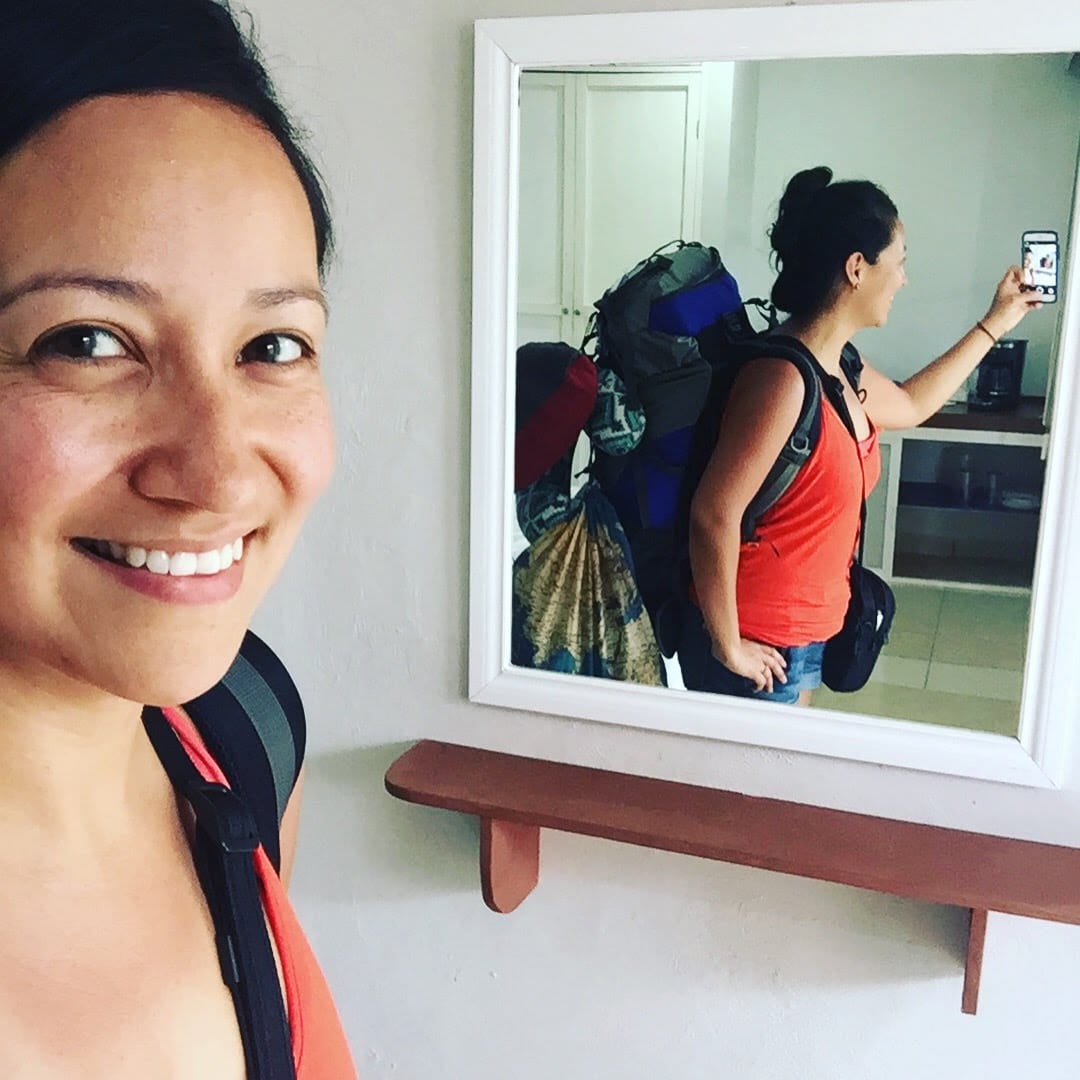
FREE PACKING LIST GIFTS BELOW!
Below is our comprehensive packing list for both warm weather and cold weather. Click each photo below to download our free PDF Gifts! (Please note: these lists include everything we needed to work on our laptops and document our trip through video and photography in addition to volunteering.)
International Vaccinations
It is also very important to go to an international clinic in your hometown that is devoted to getting you the shots and vaccinations you need for specific countries you will be visiting (they should be up to date and knowledgeable about this). Be sure to book your appointment well in advance (at least a few weeks), and get all of your shots and medicine within enough time before your departure. Especially when traveling to areas where water could be unsafe and mosquito ridden, it is very important to get the correct vaccinations and protections from diseases that could be potentially fatal.
Health Insurance
International health insurance – it’s a personal choice. If you are young and healthy, many might argue it is a waste of money, since many of the medical expenses that you need are a fraction of the cost of your home’s doctor’s office. And paying out of pocket when needed is MUCH cheaper than paying a high monthly insurance bill. However there are some insurance companies that cover you ONLY in the case of a medical emergency (ie. a helicopter needs to take you to the nearest American hospital after an extreme sports accident). In these cases, that might be your best bet. Honestly at this point we do not have global health insurance. Cassie suffered from a kidney infection about two months into our time abroad here in Merida, Mexico. Driving to the nearest hospital (recommended by the US Consulate), we were in and out within about an hour. This included a meet with the doctor and blood and urine tests. We came back a few hours later to get the test results and pay for the needed medication. It was a state of the art, clean and professional setting. It was just as good as any hospital we have been to in the States. The total cost came in at less than $30.00 USD. NOW THAT IS A STEAL! So again – getting health insurance abroad is completely a personal choice. If you have any experience with this we would love to hear about it in the comments below!
Insurance for Expensive Things
If you’re packing anything expensive make sure to get insurance in case of damage or loss. We are filmmakers and photographers. Our kit estimates over $20,000 worth of equipment (including cameras, accessories, audio, laptops, external hard drives, tablet, cell phones, etc). With that kind of equipment adventuring through the world we decided to purchase insurance for it. We did our research and called and compared several different companies. More info in our packing list above!
Tip #Ten
Always Protect Your Money, Especially If Things Are Not What They Seem:
If they ask you to pay cash, walk away. Paypal and some travel credit cards protect their customers from fraud. Also most volunteering should not cost extra money once you are there, so you shouldn’t have to bring a lot of extra cash other than the amount you set aside for your exit strategy. We have used our travel credit card Chase Sapphire Preferred to get us out of a lot of jams. They have built in protetions for travelers and you should take advantage of as many as you can.

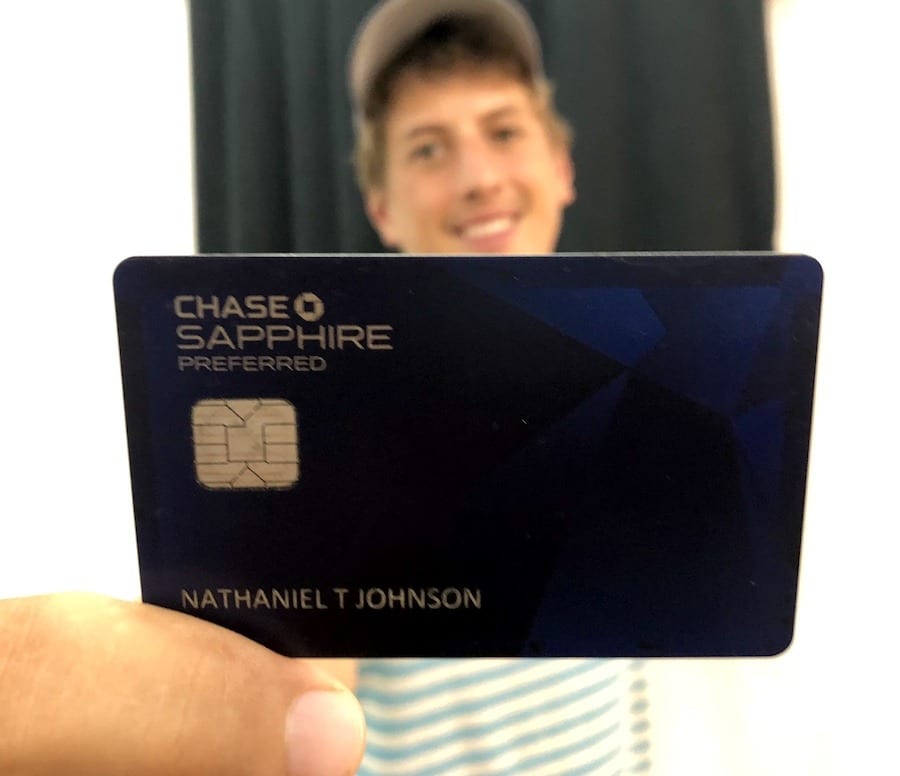
Tip #Eleven
Have An Exit Strategy If Things Go Wrong
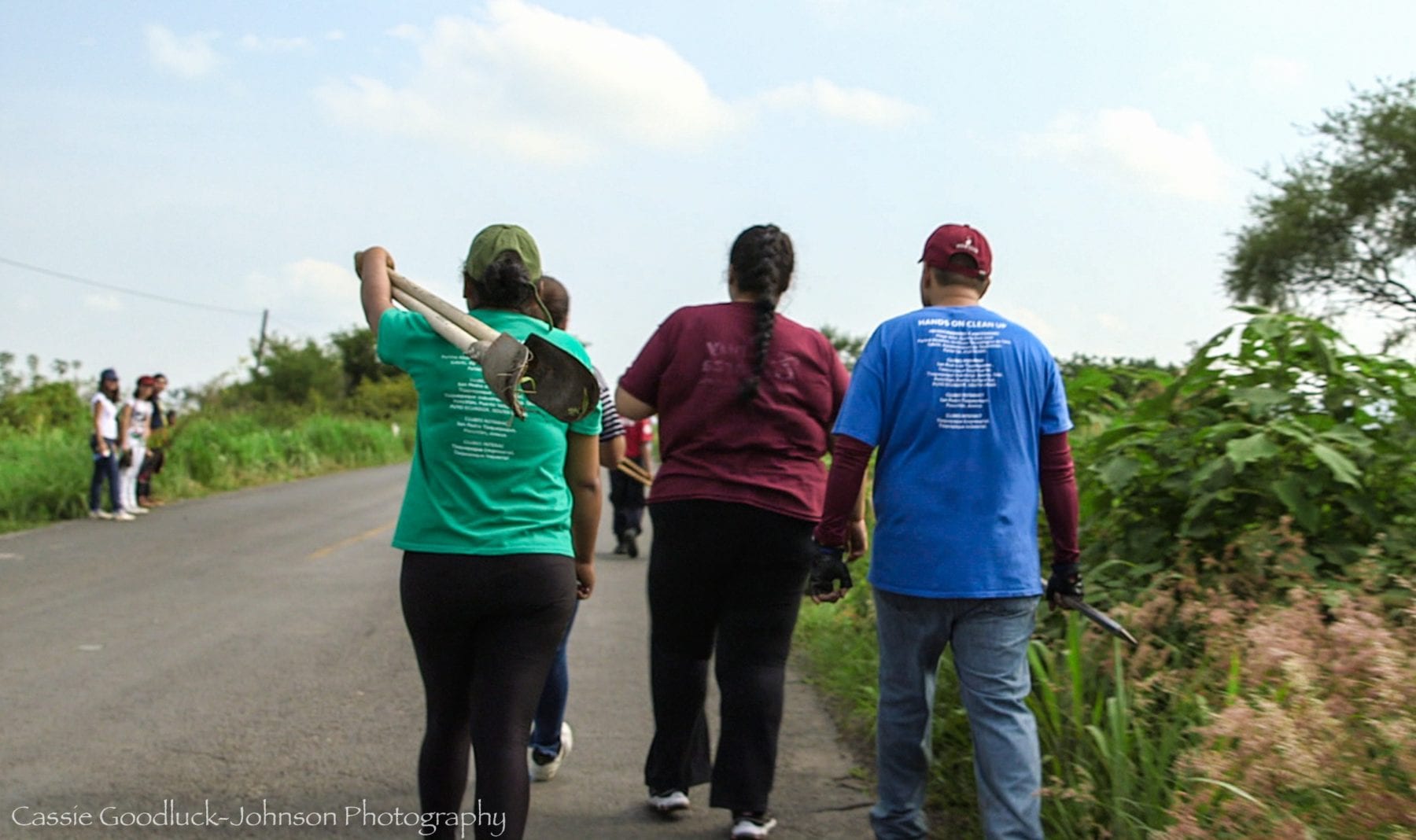

Volunteering – A Life Changing Experience
Volunteering abroad or locally can be one of the best and most life changing experiences a person can have. We hope a small amount of the insight shared here helps you make the best decision and find the perfect project on your volunteering journey.
We Would Love To Hear Your Story!
If you have any questions, leave a comment with your name and email address below, and we would be happy to talk with you more! And if you have any volunteering experiences you would like to share please feel free to leave them in the comments or contact us with your story. We may feature it on Native Nomads Blog in the future! Thanks so much and Happy Volunteering!!!!!
